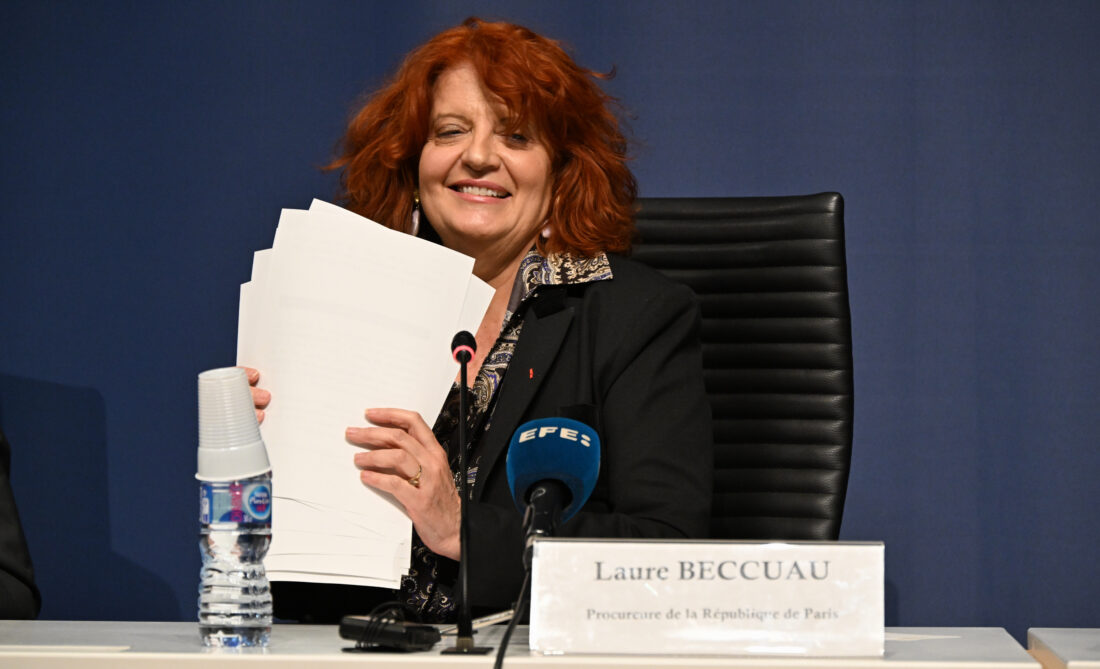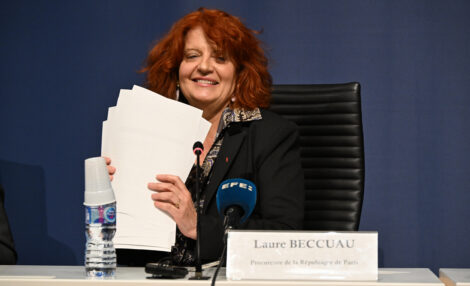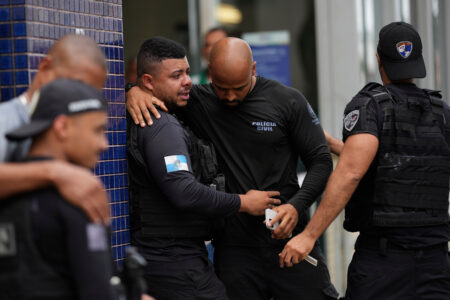Prosecutor says 2 suspects in jewel heist acknowledge their involvement

Paris prosecutor Laure Beccuau attends a news conference Wednesday at the Paris courthouse on the judicial investigation into the jewels robbery at the Louvre museum in Paris, France. (AP Photo/Emma Da Silva)
PARIS (AP) — Two suspects in the Louvre jewel heist on Wednesday were handed preliminary charges of criminal conspiracy and theft committed by an organized gang, according to the Paris prosecutor’s office. The prosecutor said they admitted their involvement.
Prosecutor Laure Beccuau told a news conference that the two are believed to be the men who forced their way into the world’s most visited museum Oct. 19, and that at least two other accomplices are at large. The jewels remain missing.
The two were given preliminary charges and ordered held in custody pending further investigation, the prosecutor’s office said in a statement.
They have “partially” admitted their participation in the robbery, Beccuau said. She declined to provide details about the suspects’ statements to investigators because she said accomplices may listen.
It took thieves less than eight minutes to steal the jewels valued at 88 million euros ($102 million) on Oct. 19, shocking the world. The robbers forced open a window, cut into cases with power tools and fled with eight pieces of the French crown jewels.
The two men arrested on Saturday night “are suspected of being the ones who broke into the Apollo Gallery to steal the jewels,” Beccuau said.
One is a 34-year-old Algerian national who has been living in France since 2010, Beccuau said. He was arrested at Charles de Gaulle airport as he was about to fly to Algeria with no return ticket. He was living in a suburb north of Paris, Aubervilliers, and was known to police mostly for road traffic offenses. His DNA was found on one of the scooters used by robbers to leave the scene, she said.
The other suspect, 39, was arrested at his home in Aubervilliers. “There is no evidence to suggest that he was about to leave the country,” Beccuau said. The man was known to police for several thefts, and his DNA was found on one of the glass cases where the jewels were displayed and on items the thieves left behind, she added.
Video surveillance cameras showed there were at least four criminals involved, Beccuau said.
The four suspected robbers arrived onboard a truck equipped with a freight lift that two of them used to climb up to the museum’s window. The four of them left onboard two motor scooters along the Seine River toward eastern Paris, where they had some other vehicles parked, she detailed.
Beccuau said nothing suggests that the robbers had any accomplices within the museum’s staff.
The jewels have not been recovered, Beccuau said.
“These jewels are now, of course, unsellable … Anyone who buys them would be guilty of concealment of stolen goods,” she warned. “There’s still time to give them back.”
Earlier Wednesday, French police acknowledged major gaps in the Louvre’s defenses — turning the dazzling daylight theft into a national reckoning over how France protects its treasures.
Paris Police Chief Patrice Faure told Senate lawmakers that aging systems and slow-moving fixes left weak seams in the museum.
“A technological step has not been taken,” he said, noting that parts of the video network are still analog, producing lower-quality images that are slow to share in real time.





